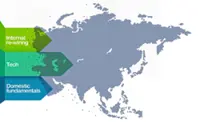Did you know that Timor-Leste has the youngest population in the South-East Asian region? According to a Seasia Stats research in 2023, the country has the lowest average age population in South-East Asia, at 20.9 years.
It is also the youngest nation in the region, meaning that there is still a lot of growing and developing to do by the nation and its people. As the country’s future leaders and game-changers, its youths require guidance and empowerment to reach their full potentials.





